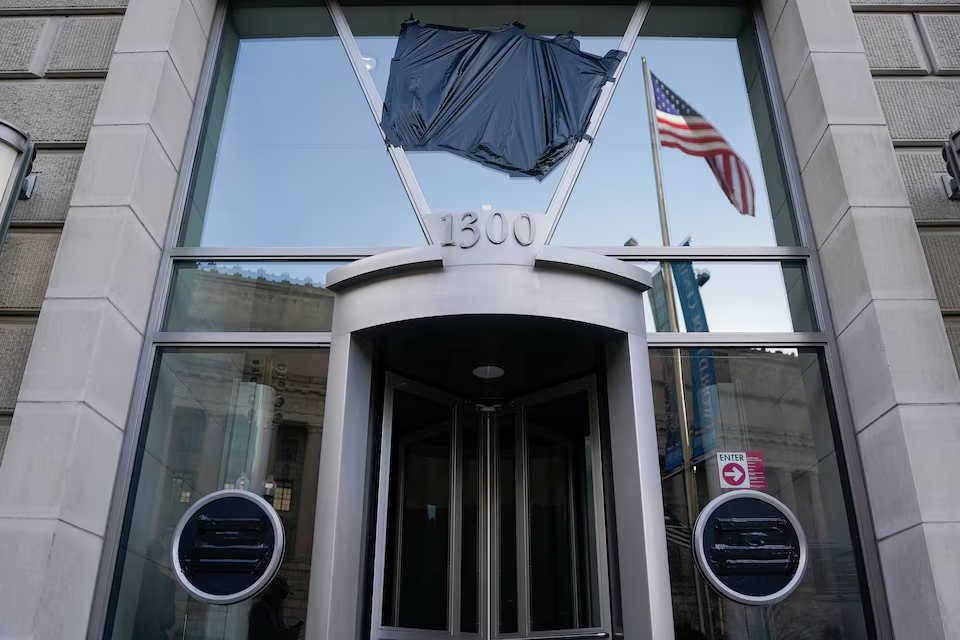- Business
- Flavors and E-Liquids
- Health and Safety
- Top Vape Brands
- Vape Deals and Discounts
- Vape Reviews
- Vaping
- Vaping Culture
- Vaping Guides
- Vaping News and Trends
US judge pauses plan to put USAID workers on leave

Introduction
In a surprising turn of events, a U.S. judge has temporarily halted a plan that would have placed dozens of top career employees at the U.S. Agency for International Development (USAID) on administrative leave. The decision follows an order by the Trump administration that aimed to sideline senior leadership at the agency, a move that critics argue could disrupt critical Tobacco Tyson 2.0 7500 humanitarian and development programs. This judicial intervention raises questions about executive authority, due process, and the broader implications for U.S. foreign aid initiatives.
Background on USAID Staffing Shake-Up
On January 27, 2025, reports emerged that the Trump administration had instructed a significant number of senior USAID officials to take immediate administrative leave. The order, issued via email, affected members of the Senior Executive Service and senior Foreign Service, many of whom play crucial roles in overseeing aid programs worldwide. According to sources, the directive was framed as a response to internal resistance against recent presidential executive orders.
The move impacted nearly every senior career staffer in Washington, leaving critical offices, such as the Bureau for Global Health, without leadership. Given that these employees were placed on leave with full pay, the measure was seen as an attempt to remove key personnel without outright dismissing them. The administration defended its decision as necessary for enforcing White House directives, while critics viewed it as an effort to purge nonpartisan leadership.
Judicial Intervention: Why the Judge Paused the Plan
A federal judge has now intervened, temporarily halting the plan. The ruling suggests concerns about the legality and rationale behind the mass administrative leave orders. While the full reasoning has not been disclosed, legal experts speculate that the judge considered whether the administration overstepped its authority in sidelining career officials without clear procedural grounds.
Administrative leave, while a common temporary measure in government agencies, is typically used for cases of misconduct or pending investigations. In this instance, the sweeping application of leave across USAID’s senior leadership raised red flags. The judge’s decision signals a need for further scrutiny before such a significant reshuffling of personnel can proceed.
Political and Administrative Implications
The temporary block on the leave orders has significant ramifications for both USAID and the broader federal workforce. For one, it prevents a sudden vacuum in mike tyson vape leadership at an agency responsible for crucial global aid initiatives. USAID’s work includes responding to humanitarian crises, supporting economic development, and managing health programs—operations that could face severe disruptions without experienced leadership.
Moreover, the move fits into a larger pattern of executive branch staffing decisions aimed at consolidating control over federal agencies. If the judicial system ultimately rules against the administration, it could set a precedent limiting the White House’s ability to unilaterally remove career officials.
Reactions from Officials and Stakeholders
Reactions to the pause have been mixed. Some officials within USAID have expressed relief, arguing that sidelining senior staff could have severely hindered the agency’s ability to function effectively. One former senior Trump administration official, however, described the leave orders as a necessary step to ensure compliance with presidential directives.
Legal analysts have pointed out that while administrations have significant latitude in staffing decisions, they cannot violate civil service protections. The judge’s decision has emboldened career officials concerned about political interference in traditionally nonpartisan roles.
Potential Consequences of the Pause
With the judicial stay in place, USAID’s leadership remains intact for now. However, the legal battle is far from over. The administration could appeal the decision, or attempt alternative strategies to restructure agency leadership. Meanwhile, USAID employees remain in a state of uncertainty, unsure of their long-term job security.
The outcome of this case could also influence future actions across other federal agencies. If the courts rule that the administration acted improperly, it may deter similar moves in other departments. Conversely, if the administration prevails, it could embolden further shake-ups in the civil service.
Broader Impact on U.S. Foreign Policy and Aid Programs
Beyond internal agency politics, the decision has ramifications for U.S. foreign policy. USAID partners with governments and NGOs worldwide to implement development projects. A leadership vacuum, or even the perception of instability within the agency, could undermine confidence in U.S. aid commitments.
International partners rely on consistency in U.S. foreign assistance. Disruptions at USAID could lead to project delays, funding gaps, and strained diplomatic relationships. Countries receiving aid may question whether the U.S. remains a reliable partner, particularly in humanitarian crises.
Conclusion
The judge’s decision to pause the leave orders represents a significant check on executive authority, reinforcing the principle that even high-level staffing decisions must adhere to legal frameworks. While the administration argues that the move was necessary to Virginia Tobacco Tyson 2.0 7500 align USAID with its policy goals, critics view it as a dangerous precedent for politicizing career civil service roles.
As legal proceedings unfold, the case will likely serve as a litmus test for the limits of presidential power over federal agencies. For USAID employees and the global communities they serve, the outcome will determine whether stability or upheaval defines the agency’s immediate future.



